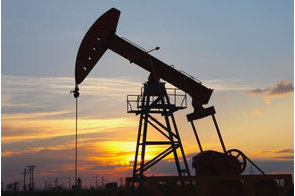Latest News
OPEC optimistic on oil market balancing

News Highlight
- OPEC said oversupply in the crude oil market is set to balance in 2016.
The Organization of Petroleum Exporting Countries (OPEC) released its monthly crude oil market report on Monday, stating that it expects a more balanced oil market in the second half of 2016 as global oil demand and supply growth stabilizes.
“Provided there is a clearer picture regarding oil supply and demand, the expected improvement in global economic conditions should result in a more balanced oil market toward the end of the year,” OPEC said in the latest report.
The oil cartel said there is lower buildup in stocks. Global crude stocks rose by 19 million barrels in February, an additional 12 million in March and April. However, there was a decline in crude stock by 8 million barrels in May.
Oil demand will grow by 1.2 million barrels per day (mb/d) this year to an average of 94.18 mb/d. The forecast is unchanged from OPEC’s previous report in May. The cartel said Asian countries, led by India, are expected to be the main contributor to oil demand growth in 2016.
OPEC said its crude oil production decreased by 100,000 barrels per day in May and reached 32.36 mb/d. Non-OPEC oil production, on the other hand, is expected to fall by 740,000 barrels a day from 2015 to 56.4 mb/d this year.
OPEC said “Shutdowns in Nigeria and Canada tightened the oil market markedly and brought supply and demand more closely into alignment earlier than many had expected, bolstering prices.”
Oil prices have rallied by over 80 percent from a 12-year low in February because of supply disruptions in Nigeria and Canada as well as an unexpected decline in US oil output. OPEC forecasts that US oil production will fall by 420,000 barrels per day in 2016 to 13.57 mb/d.
OPEC’s 13 member countries failed to agree on any production target during their ministers’ meeting on June 2. This means that the cartel will continue its policy, influenced by Saudi Arabia, of pumping at high levels to hurt high-cost producers in North America.
Related News
Latest Blogs
- How far Nigeria’s maritime has come
- The curious case of Nigeria’s bans
- Why Africa will be missing on ‘Globalisation 3.0’
- The Nigerian high-interest-rate trap
- How Tinubu is ensuring equitable access to public services
Most Popular News
- Artificial intelligence can help to reduce youth unemployment in Africa – ...
- Wärtsilä chosen for 30 MW power plant project in Victoria Island, Lagos
- Dual conference in Cairo promotes innovation and asset integrity in Africa
- Lower-income countries commit record $250m to immunisation – Gavi
- User account leaks fall in Nigeria, globally
- IMF warns of global public debt approaching 100 percent of GDP









